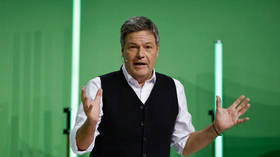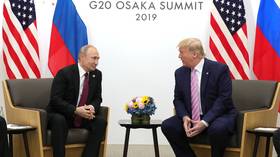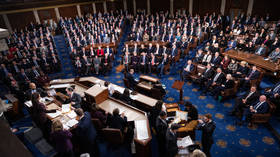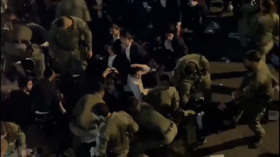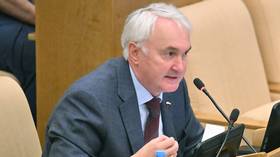Scholz blocking new Ukraine aid – Spiegel

German Chancellor Olaf Scholz is dragging his feet on approving an additional €3 billion ($3.1 billion) military aid package for Ukraine, despite pressure from Foreign Minister Annalena Baerbock and Defense Minister Boris Pistorius, Der Spiegel reported on Thursday. Scholz, who is facing a snap election next month, reportedly believes the move is unnecessary.
According to the outlet, the German government is embroiled in a heated debate over the proposed aid. The package could reportedly include advanced anti-air weapons and artillery, and is seen by Baerbock and Pistorius as critical for Ukraine as it struggles to contain Russian advances on the battlefield.
The ministers are also said to be concerned about the uncertainty of continued US support for Kiev following the inauguration of US President-elect Donald Trump, a critic of Ukraine aid, who is set to be sworn into office on January 20.
Baerbock and Pistorius aim to fund the assistance plan by requesting unscheduled expenditure from the Bundestag’s budget committee, a mechanism previously used for Ukraine aid, Spiegel reported.
Scholz is said to be opposed to the proposal for several reasons. According to the magazine, he does not want to “present the future federal government with a fait accompli” on Ukraine aid.
Furthermore, the chancellor’s office reportedly believes that Ukraine still has sufficient funds available from earlier German aid commitments. At the same time, insiders from his SPD party told Spiegel the chancellor could be avoiding any new arms deliveries during the election campaign, fearing it might alienate voters.
The wrangling over the aid package follows the collapse of Germany’s traffic light coalition in November due to a number of disputes, including on Ukraine aid. A snap election is scheduled for February 23.
Germany has been a key supporter of Kiev since the start of the conflict, pledging around €28 billion in total assistance. However, Germany slashed its military aid to Ukraine in 2025 to €4 billion, down from €7.5 billion the previous year. Scholz has also been reluctant to approve deliveries of Taurus long-range missiles, arguing that it could escalate hostilities and make Germany a direct participant.
Russia, meanwhile, has repeatedly denounced Western arms shipments to Ukraine, claiming they prolong the conflict without changing its ultimate outcome.
